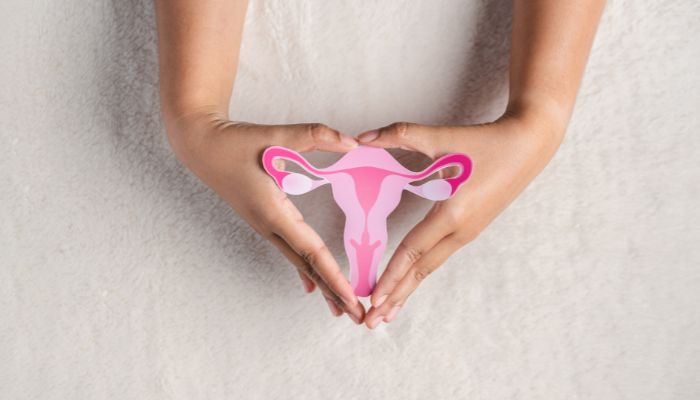
Maintaining vaginal health is crucial for women’s overall well-being. The vagina is a self-cleaning organ, but sometimes, it needs some extra care to maintain its optimal health. One way to ensure vaginal health is by incorporating vitamins and other essential nutrients into your diet. Find the best vitamins for vaginal health, their benefits, recommended daily intake, and food sources.
Vitamin C
Vitamin C is a powerful antioxidant that helps protect the body’s cells from damage caused by free radicals. It also supports the immune system, and it is essential for the production of collagen, a protein that plays a vital role in maintaining the vaginal lining’s elasticity. Vitamin C can help prevent vaginal dryness and infections by promoting the growth of healthy bacteria in the vagina.
The recommended daily intake of vitamin C for adult women is 75mg per day. Foods rich in vitamin C include citrus fruits like oranges and grapefruits, berries, kiwi, red bell peppers, and broccoli.
Vitamin D
Vitamin D is a fat-soluble vitamin that helps the body absorb calcium, which is essential for strong bones and teeth. It also supports the immune system, and it is crucial for maintaining healthy skin. An increased risk of vaginal infections, including yeast infections, is linked to low levels of vitamin D.
The recommended daily intake of vitamin D for adult women is 600-800IU per day. Foods rich in vitamin D include fatty fish like salmon, tuna, and mackerel, egg yolks, and fortified foods like milk and cereal.

Vitamin E
Vitamin E is a fat-soluble vitamin that acts as an antioxidant, protecting the body’s cells from damage caused by free radicals. It also supports the immune system, and it is crucial for healthy skin and hair. Vitamin E can help reduce vaginal dryness by increasing blood flow to the vaginal area.
The recommended daily intake of vitamin E for adult women is 15mg per day. Foods rich in vitamin E include nuts like almonds and peanuts, seeds like sunflower seeds and pumpkin seeds, and vegetable oils like sunflower, safflower, and soybean oil.
Vitamin B complex
The vitamin B complex consists of eight vitamins that work together to support the body’s metabolism, nervous system, and immune system. They also play a crucial role in maintaining healthy skin, hair, and nails. Some studies suggest that vitamin B complex supplements can help prevent and treat vaginal infections, including bacterial vaginosis and yeast infections.
The recommended daily intake of vitamin B complex varies depending on the specific vitamin. Foods rich in vitamin B complex include whole grains, meat, poultry, fish, dairy products, and leafy green vegetables.
Probiotics
Probiotics are beneficial bacteria that live in the gut and other parts of the body, including the vagina. They help maintain a healthy balance of bacteria in the vagina, which can help prevent vaginal infections, including bacterial vaginosis and yeast infections.
The recommended daily intake of probiotics varies depending on the specific strain. Foods rich in probiotics include fermented foods like yogurt, kefir, sauerkraut, kimchi, and tempeh.
Chlorophyll Supplements
There is limited scientific research on the specific benefits of chlorophyll for vaginal health. However, as chlorophyll is a potent antioxidant and anti-inflammatory, it may have some indirect benefits for vaginal health.
Antioxidants, like chlorophyll, help protect cells from damage caused by free radicals, which can lead to inflammation and other health issues. Inflammation in the vaginal area can cause discomfort, itching, and other symptoms associated with vaginal infections.
Additionally, chlorophyll has been shown to have some antimicrobial properties, meaning it may help fight off harmful bacteria that can cause vaginal infections.
While there is no specific recommended daily intake of chlorophyll, it can be obtained through a diet rich in green vegetables, such as spinach, kale, and broccoli. Chlorophyll supplements are also available, but it is important to speak with a healthcare professional before starting any new supplements.
Vagina Tighneting
The vagina is designed to be elastic and stretchable, and its tightness can vary based on a variety of factors, including age, hormonal changes, childbirth, and sexual activity. While some people may be interested in ways to increase the tightness of their vaginal walls, it is important to note that there is no guaranteed method to achieve this, and it is not necessary for vaginal health or pleasure.
That being said, there are some exercises and techniques that can help strengthen the pelvic floor muscles, which can in turn improve vaginal muscle tone and tightness. These exercises are commonly known as Kegel exercises and involve contracting and relaxing the muscles used to control urine flow.
Other techniques that may help improve vaginal muscle tone and tightness include using weighted vaginal cones, which can be inserted into the vagina and held in place using the pelvic floor muscles, and using a vaginal dilator, which is a tube-shaped device that gradually stretches the vaginal muscles.
It is important to speak with a healthcare professional before starting any new exercises or techniques, as certain medical conditions, such as pelvic organ prolapse, may require a different approach to pelvic floor strengthening.
Summary
In conclusion, maintaining vaginal health is crucial for women’s overall well-being. Incorporating vitamins and other essential nutrients into your diet can help promote vaginal health by preventing vaginal infections, reducing vaginal dryness, and supporting the immune system. However, it is essential to consult with a healthcare professional before making significant dietary changes. A balanced diet, regular exercise, and proper hygiene are also crucial for maintaining optimal vaginal health.

Lifebing is driven by an unrelenting passion for promoting health and well-being, our team is wholly committed to curating exceptional content and immersive experiences.
